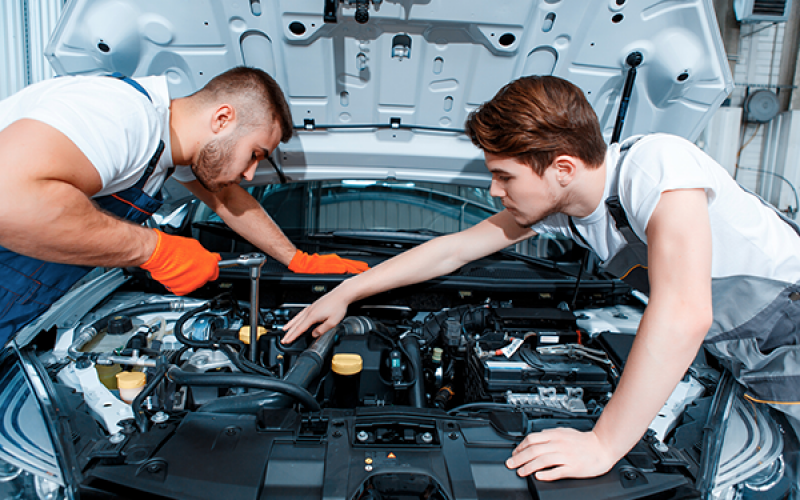All Categories
Featured

Your cars and truck's engine is the heart of your car, and maintaining it in top problem is vital for ideal performance and durability. Routine engine tune-ups are a wonderful means to preserve your automobile's wellness, boost gas efficiency, and prevent costly repair services in the future. Whether you're an automobile lover or somebody who simply intends to maintain their car running efficiently, these engine tune-up pointers will certainly aid you get the most out of your cars and truck.
- Replace Spark Plugs. Spark plugs play a critical role in beginning your engine and guaranteeing smooth burning. In time, trigger plugs can end up being filthy or broken, leading to misfires, reduced fuel effectiveness, and harsh idling.
Throughout an engine tune-up, evaluate and change your ignition system if necessary. A lot of vehicles call for new trigger plugs every 30,000 to 100,000 miles, relying on the kind. Consistently replacing ignition system ensures correct ignition and optimal engine performance.
- Check and Clean the Air Filter. The air filter protects against dirt, dust, and debris from entering your engine. A clogged or filthy air filter limits air movement, triggering your engine to function more difficult and melt more fuel.
Evaluate your air filter throughout a tune-up and replace it if it's unclean. In messy settings or areas with heavy contamination, you may need to transform the air filter more often. A tidy air filter can improve fuel performance and expand the life of your engine.
- Check and Replace Belts and Pipes. Belts and pipes are important for various engine features, such as powering the alternator, water pump, and a/c system. With time, these parts can break, fray, or break, potentially bring about malfunctions.
Throughout a tune-up, check belts and tubes for indications of wear and replace them if required. Replacing these components proactively can save you from costly repair services and avoid unanticipated failings.
- Tidy the Gas System. Your fuel system, consisting of the gas injectors and gas lines, can collect dust and carbon deposits with time, decreasing engine efficiency. Cleaning the gas system throughout a tune-up assists improve efficiency and fuel economy.
You can utilize a gas system cleaner or have a professional mechanic perform a much more detailed cleansing. This step is particularly crucial for older automobiles or cars and trucks that frequently drive in stop-and-go web traffic.
- Check the Battery and Charging System. A healthy battery is necessary for beginning your engine and powering electric components. During a tune-up, check the battery terminals for corrosion and make sure the connections are tight.
Check the battery's voltage and replace it if it shows signs of weakness. Additionally, have the generator and billing system evaluated to guarantee your battery stays billed throughout operation.
- Change the Engine Oil and Oil Filter. Oil changes are a basic component of engine upkeep. Engine oil lubricates relocating parts, lowers rubbing, and aids regulate engine temperature level. Over time, oil ends up being polluted and sheds its effectiveness.
Throughout a tune-up, change the engine oil and oil filter to keep your engine running smoothly. Follow your vehicle's manufacturer suggestions for oil type and change periods.
- Evaluate the Air Conditioning System. The cooling system avoids your engine from overheating. In time, coolant can weaken or become polluted, minimizing its efficiency.
Examine the coolant level and problem during a tune-up, and flush and change it if needed. Evaluate the radiator, water pump, and hoses for leakages or damage. A well-maintained air conditioning system aids your engine operate at the right temperature and avoids overheating.
- Check the Ignition System. A damaged ignition system can create beginning concerns and minimized engine efficiency. Throughout a tune-up, inspect the ignition coils, supplier cap, and rotor (if applicable) Replace any kind of components that show indications of wear or damage to make sure smooth and trusted engine procedure.
- Pay Attention for Unusual Noises. Throughout a tune-up, seize the day to listen for any uncommon engine noises, such as knocking, ticking, or hissing. These audios can suggest underlying issues, such as shutoff issues, loose parts, or exhaust leaks. Dealing with these issues early can protect against a lot more extensive damage.
- Usage Top Quality Parts and Fluids. When carrying out an engine tune-up, always make use of high-grade components and liquids that satisfy your lorry producer's requirements. Inexpensive or wrong elements can compromise your engine's efficiency and reliability.
Verdict: A Well-Tuned Engine is Key to Longevity. Routine engine tune-ups are vital for preserving your vehicle's efficiency, performance, and integrity. By changing used elements, cleansing crucial systems, and resolving potential concerns, you can keep your engine running smoothly for years to come. Whether you're doing it yourself or depending on a relied on mechanic, spending in tune-ups is a wise way to safeguard your lorry and enjoy a much safer, smoother experience.
Latest Posts
Check Out Outstanding Car Repair Care from Montclare Auto Repair – Keep Your Car Running Smoothly
Discover the Best Auto Repair Coupons in Montclare, Chicago
Discover WyHy FCU – The Key to Superior Financial Services in Wyoming
More
Latest Posts
Check Out Outstanding Car Repair Care from Montclare Auto Repair – Keep Your Car Running Smoothly
Discover the Best Auto Repair Coupons in Montclare, Chicago
Discover WyHy FCU – The Key to Superior Financial Services in Wyoming
